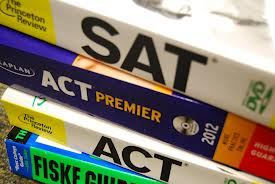2 Ways to Improve Your Reading Score on the SAT & ACT
- Precision Academic Tutoring
- Jun 29, 2021
- 2 min read

The SAT and ACT’s “Reading” portions are often the hardest sections for students to improve upon. While students can easily raise their Math and Writing scores by learning various mathematical formulas and grammar rules, respectively, there aren’t any such shortcuts for the Reading section. The SAT and ACT’s Critical Reading sections vary slightly (the SAT features vocabulary questions, for instance, while the ACT does not), but the principles of both tests are very much the same. Students who are rather voracious readers typically fare better on the Reading portion because they are able to identify the subtleties and nuances in the passages that the SAT and ACT test on. I have found that the following two tips have helped students develop the requisite skills necessary to be successful on the Reading sections of both tests.
1) Read 30-60 Additional Minutes Every Night It is important to make a commitment to reading more leading up to the exam. Most students are able to demonstrably improve their reading comprehension skills in as little as 2-3 months of consistent nightly reading. I encourage students to begin this process by reading anything that they may find appealing (sports stories, biographies, magazine articles etc.). As students progress in this process, however, they should eventually transition to more challenging material, such as the New York Times or New Yorker Magazine. Such publications are representative of the passages the SAT & ACT will include in their tests. Remember: it is always better to read slower if it will enable you to understand each detail of the text. Speed and accuracy will improve over time.
2) Keep a Vocabulary Journal While many test prep centers advocate memorizing thousand word vocabulary lists in preparation for the Reading section, I’ve found that it is always better to learn new words as you naturally encounter them. If students are engaging in 30-60 additional minutes of reading a night (see point #1), they will most assuredly stumble upon scores of new words. It is important to practice good reading habits and not to skip over any words that you cannot reasonably define or explain. I recommend that students stop to catalogue each word they do not know by writing it down as well as its part of speech (noun, verb…etc.), definition, and the sentence of the article/book in which they encountered the new word. Students will soon not only develop an organic list of new words that they have taught themselves, but will be better able to integrate this new vocabulary in to their vernacular.
It is important to remember that there are no shortcuts or quick fixes for the Reading section. It takes hard-work and determination to experience success on this section. However, these two basic approaches have yielded great results with students who have historically struggled on these sections of the test.



Comments